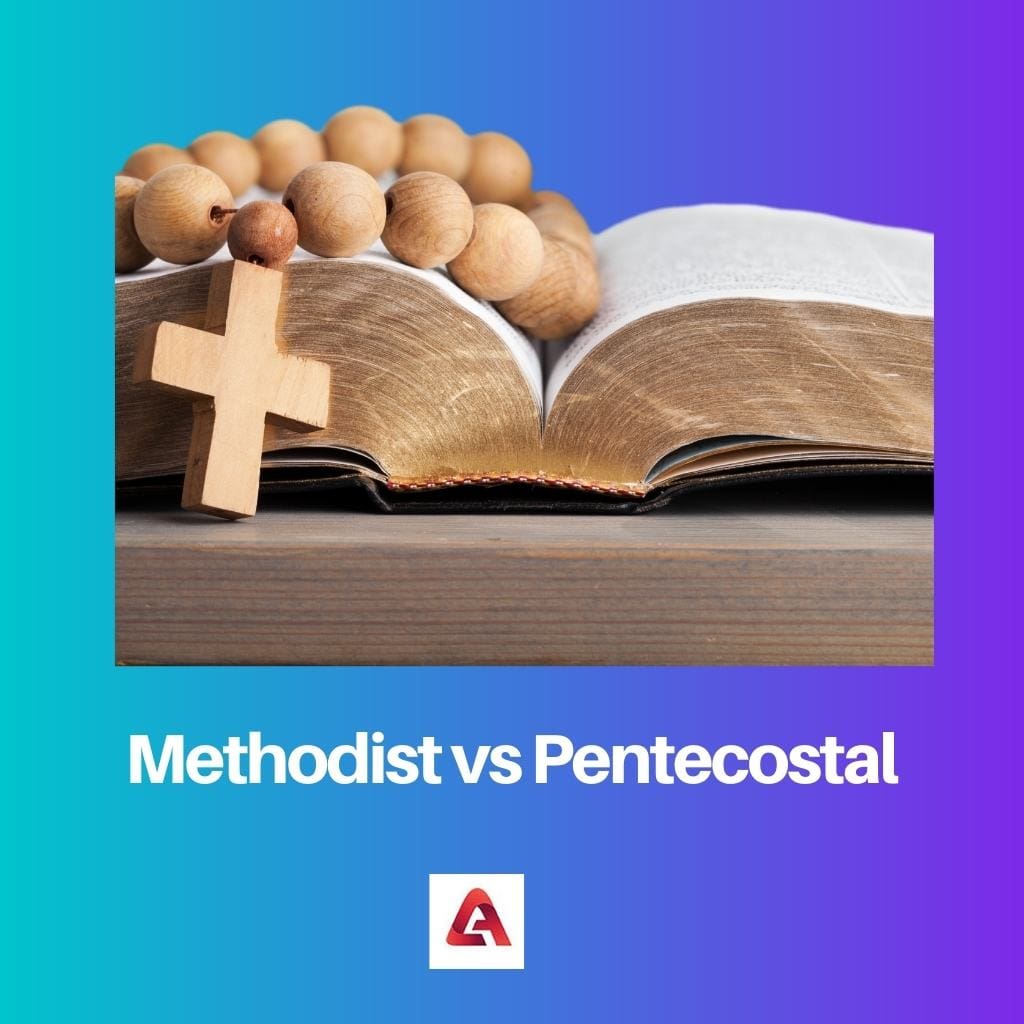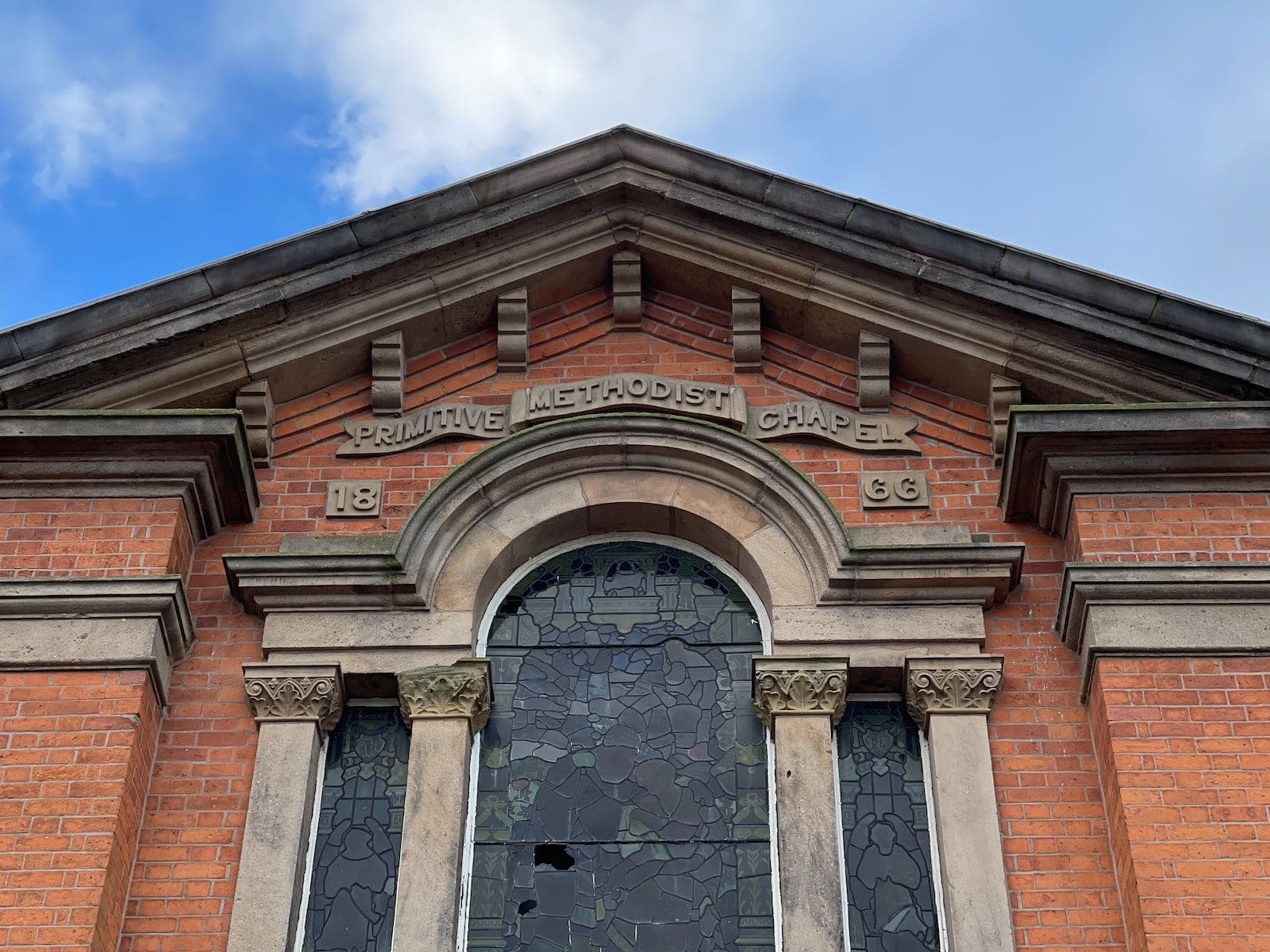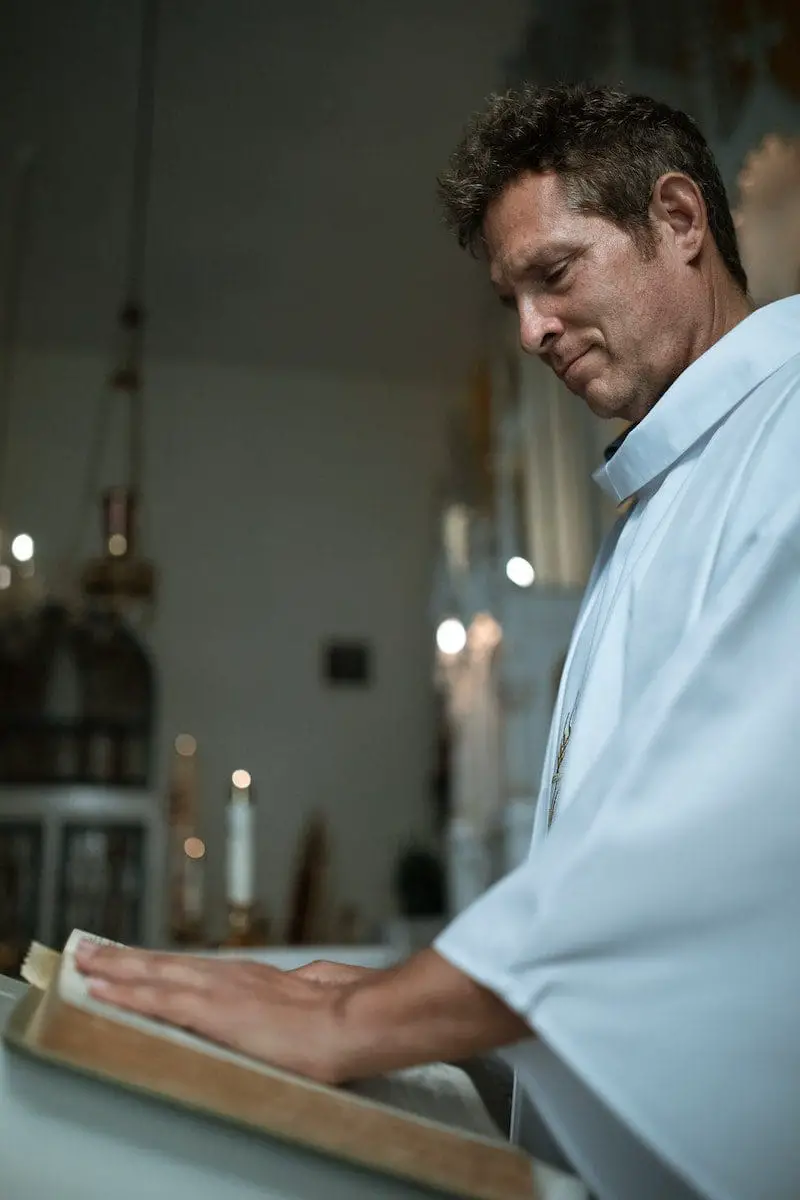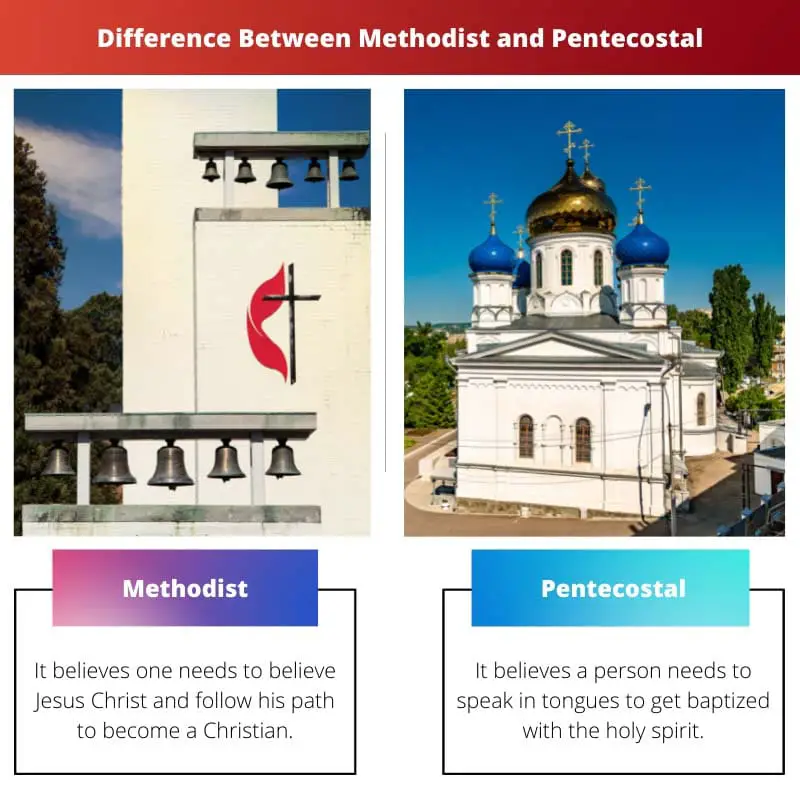Christians, followers of Jesus Christ, are divided into many denominations. There are many denominations like Catholics, Baptists, Lutherans, etc.
Among many sects, Methodist and Pentecostal are two different sects of Christianity that are new but growing day by day. They are the same, but their beliefs, acts, and ideologies are unlike, which makes them different.
Key Takeaways
- Methodists and Pentecostals are distinct Christian denominations with differing beliefs, practices, and rituals.
- Methodist churches emphasize tradition, sacraments, and social justice, while Pentecostals prioritize spiritual gifts, speaking in tongues, and the Holy Spirit’s direct experience.
- Methodist and Pentecostal churches have different structures and governance, with Methodists following an episcopal system and Pentecostals being more congregational.
Methodist vs Pentecostal
Methodists are protestant Christians who follow the faith and teachings of John Wesley. They believe that Jesus Christ is a supreme being and reflect orthodox Christianity. Pentecostal is a Christian movement of the early 20th century. It is a festival celebrated on the seventh Sunday after Easter to honour the descent of Holy Spirit upon the Apostles.

Methodists believe that a person needs only to believe in Jesus Christ to become a Christian. According to them, infant baptism is correct, but anyone can also get baptized even after they become an adult. Believing in Jesus Christ is like getting a new life; by this, a person gets baptized with the holy spirit.
Pentecostals believe that a person needs to speak in tongues to ultimately get baptized with the holy spirit. It is necessary for salvation. You can not get saved until you start speaking in tongues. It emphasizes the presence and power of Jesus Christ.
Comparison Table
| Parameters of Comparison | Methodist | Pentecostal |
|---|---|---|
| Beliefs | It believes one needs to believe Jesus Christ and follow his path to become a Christian. | It believes a person needs to speak in tongues to get baptized with the holy spirit. |
| Start | It started in the 18th century. | It started in the early 20th century. |
| Founder | John Wesley started it. | Agnes Ozman started it. |
| Baptism | It allows baptism by pouring, sprinkling or immersion. | It only allows total immersion. |
| Concepts | It believes in the holy bible, Trinity, etc. | Some sects reject the belief in Trinity. |
What is Methodist?
Methodism is a Christian movement started in the 18th century by John Wesley. He started this with his brother Charles in the Church of England as an act of reform.
They meet weekly and discuss how to live a holy life and help poor and needy people.
He started living a life without luxury and amusements and suggested everyone do so.
Hence their followers started calling them methodists because of their way of life being followed by rules and methods.
Methodist was not supposed to separate from the church, but differences in ideologies led to the separation of this group from the church after the death of John Wesley.
When the group started, it only had four members; they used to call themselves ‘Holy Club,’ and till 1791, when Wesley died, this group had gained around 72,000 members in Britain and 60,000 in America, and now it has around 40 million members.
It believes that ‘social holiness’ means we must be connected to grow in society. Methodist groups are decreasing in Great Britain and North America but increasing rapidly in South Korea.
That’s how the teaching of John Wesley reached from four to Forty million people around the world.
| # | Preview | Product | |
|---|---|---|---|
| 1 |

| Being United Methodist Christians | Check Price on Amazon |
| 2 |

| Methodist Doctrine: The Essentials, Revised Edition | Check Price on Amazon |

What is Pentecostal?
Pentecostalism is also a Christian movement believed to be started in the early 20th century. The name Pentecostal comes from an event in the ‘Book of acts.’
It is an event where Christians used to get gifts of the holy spirit, which includes prophecy and divine healing.
It is a broad term divided into many sects with different beliefs. For example, some sects of Pentecostals believe in the concept of the Trinity, but some do not.
But most of the same beliefs, like the return of Jesus Christ and believing in him, are the way to salvation, and they also believe in divine healing.
They believe in speaking in tongues and that it is glossolalia and xenoglossy. It is the first Christian denomination that allowed women in leadership roles in the church.
Women can be preachers, missionaries, and even pastors.
Some sects of Pentecostals are very strict. They have dress and hair codes for men and women. They believe in modesty and decency, which make them different from other groups.
It is considered a renewal group in the Christian church. So, there are very few Pentecostals in the world right now, but it is considered the fastest-growing Christian denomination in the world.

Main Differences Between Methodist and Pentecostal
- The main difference between Methodist and Pentecostal is that Methodist is an older group started by John Wesley, while Pentecostal is a group of the modern period.
- Methodism was started in the 18th century as a holy club. On the other hand, Pentecostal was started in the early 20th century.
- Methodists believe one should believe in Jesus Christ for salvation, but Pentecostals believe in Speaking in tongues and divine healing.
- Methodists believe in the concept of the holy bible, the concept of the Trinity, whereas some sects of Pentecostals do not believe in the concept of the Trinity.
- Methodists follow immersion, pouring, and a sprinkling of water for the process of baptism, but Pentecostals believe the baptism should be done by full immersion of the body in the water.






